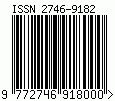VALIDASI SOAL KEMAMPUAN BERPIKIR KRITIS PADA MATERI SPLDV
Keywords:
Critical Thinking Ability, SPLDVAbstract
In the K-13 curriculum based on the 3rd core competency students must be able to understand, apply, analyze factual, conceptual, procedural knowledge based on their curiosity about science, technology, art, culture, including the criteria for critical thinking skills. The results of observations when implementing Field Experience Practices (PPL) specifically in class XI MIA 2 SMA Wahidiyah Kediri show that the learning process is still not able to maximize students' critical thinking abilities because students are less able to provide explanations such as analyzing math problems and are less able to use initial knowledge of mathematical reasoning and less able to determine other alternatives to solve the problem. This study aims to determine which questions are adequate to measure critical thinking skills. The type of research carried out in this research is research and development or Research and Development (R&D). This development research uses a development model adapted from the Borg & Gall development procedure. Research at this stage is only limited to the Design Revision stage because of time and cost as research limitations. Based on the results of the previous research and discussion, it can be concluded that the problem of critical thinking skills developed is adequate. This can be seen from the validity test results obtained by the CVR and CVI calculations in the "very appropriate" category so that all items can be said to be valid and usable. without revision. In the analysis of the difficulty level, 3 items were categorized as easy and 5 questions were categorized as moderate. Based on the results of the analysis of distinguishing power, all questions have sufficient distinguishing power. Meanwhile, the results of the reliability test of the developed critical thinking skills were said to be reliable with the "high" criteria.
Downloads
Published
Issue
Section
License
Copyright (c) 2021 AL FARABI: Journal of Mathematics and Mathematics Education

This work is licensed under a Creative Commons Attribution-NonCommercial-ShareAlike 4.0 International License.






















